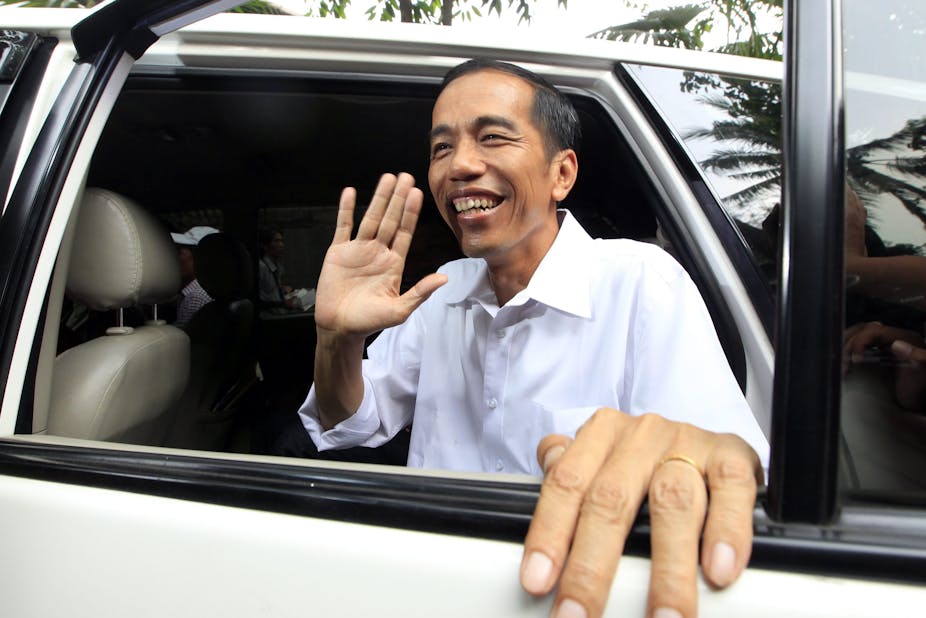Between April and July this year, the world’s first and third largest democracies, India and Indonesia, will go to the polls.
Opinion polls tell us that both countries will almost certainly see a change in government. In India, the Bharatiya Janata Party (BJP), led by Narendra Modi, appears set to oust the Indian National Congress. Indonesians will likely elect Joko Widodo, known commonly as “Jokowi”, as the country’s next president, provided he is finally nominated by his party, PDI-P.
In this age of revolution and counter-revolution, the peaceful transition of government in two countries with a combined population of close to 1.5 billion people is remarkable. However, there is discontent with the current governing elite in both countries, and this will play a key role in shaping the outcome of each election.
Institutional corruption
Notably, there is widespread anger over the undeniable extent of corruption within state institutions at the local and national levels in India and Indonesia. In 2013, Transparency International placed India at 94th and Indonesia 114th worst out of 177 countries for institutional corruption.
In Indonesia, arrests for corruption have included judges of the Constitutional Court, senior police officials and politicians. One report estimates that half of local government heads across Indonesia are currently under investigation for corruption.
In India, those snared include top-level politicians (including cabinet ministers), the chairman of the Delhi 2010 Commonwealth Games, and high-ranking bureaucrats.
The public response to corruption in the two countries has been varied. In India, public anger over corruption has spurred a mass social movement led by Gandhian social activist Anna Hazare. In Indonesia, no mass nationwide anti-corruption movement has emerged in the democratic era. But as Indonesia expert David McRae points out, the public has mobilised to defend the Corruption Eradication Commission (KPK) from police pressure.
Anti-corruption sentiment will probably be felt at the ballot box soon enough. The Congress Party, viewed by many in India as ineffective at dealing with corruption, suffered defeats in four states in December.
Perhaps the most evident sign of the importance of corruption in India has been the sudden rise of the Aam Admi (Common Man) Party. Its leader, Arvind Kejriwal, became Delhi’s chief minister last December, but resigned after less than two months in power following a failure to push an anti-corruption bill through the legislative assembly.
Meanwhile, Indonesian president Susilo Bambang Yudhoyono’s Democrat Party has slumped in the polls because of a perceived inertia on his part in dealing with a series of corruption scandals.
Divided by leadership and religion
The two overwhelming favourites to take the reins in India and Indonesia are both seen as leaders who may do more to combat patronage and improve governance.
Modi and Jokowi have successful track records at a regional level. Modi’s four terms as chief minister of Gujarat saw economic growth which far outstripped India as a whole. Jokowi was a popular mayor of Solo before he ran for governor of Jakarta. His habit of arriving unannounced at government offices to reprimand staff for being inefficient and apathetic has generated excitement about the prospect of change.
There are also some important differences between the two democracies. Political parties in Indonesia have yet to establish strong ideological identities. There is a broad division between secular and Islamic parties, but this separation is politically moot. The main claimants to power are all among the secular nationalist parties.
Unlike in India, where politicians take sides along a strong ideological divide and rarely defect, Indonesian politicians often switch parties depending on the availability of funding to run expensive campaigns. The main Indonesian parties rely mainly on the personalities of leaders, rather than ideology, to carry them to victory and establish broad coalitions to form government.
The varied importance of communal issues in the political process sets the two countries apart. Communalism, or divisions between religious communities, has long been part of political discourse in India and the rise of the BJP stems partly from the consolidation of the nationalist Hindu vote.

Religious issues will continue to be a simmering factor in the Indian election. Modi was indicted but later acquitted over his involvement in the 2002 anti-Muslim riots in Gujarat while he was chief minister. He appears ready to continue using ethnic issues to win support in some states. He has also claimed his political rivals have been weak in fighting terrorism.
On the other side, the Congress Party will emphasise its secular identity to win the votes of Muslims, who made up 14.4% of the total population in 2010.
In Indonesia, politicians at the national level rarely play overtly on religious or ethnic passions to win office. Islamic parties have not fared well in the democratic era compared to their secular rivals. Running mates from different religions or ethnicities often join forces to maximise their popularity.
Jokowi, a Muslim, ran for the governorship of Jakarta in 2012 alongside a Christian deputy. Little was made of either candidate’s faith despite some inflammatory statements and the pair easily claimed victory. As the Indonesian Survey Institute explains, middle class Muslims are “politically secular”.
What to expect
Should Jokowi run and win in Indonesia, it may prove difficult for him to meet his supporters’ expectations.
The mandate provided by widespread popular support will assist in any reformist agenda but other factors are against Jokowi, including the decentralisation of authority to the regions since 2001 and the likelihood parliamentarians will resist any attempt to increase the powers of the KPK.
Neither election is likely to affect the relationship with key regional nations such as Australia or New Zealand. An India under Modi would probably maintain its predecessor’s foreign policy. The two parties have not diverged in foreign policies substantially since the 1990s.
Similarly, a Jokowi-led Indonesia would continue what is, despite a number of high-profile recent annoyances over Australian spying and asylum seekers, a strong relationship.

